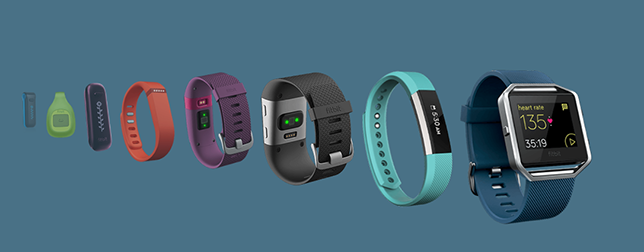With the launch of its first product, the Fitbit Tracker, Fitbit has gained a foothold in healthcare. Since its launch in 2007, the San Francisco, CA-based company has been producing activity trackers, wireless-enabled wearable technology devices that measure data such as the number of steps walked, heart rate, quality of sleep, steps climbed, and other personal metrics involved in fitness.
For years Fitbit has sold its products to employees via corporate wellness programs. As more and more large employers are providing their health insurance to employees, measuring and promoting wellness has become very important.
More recently the company has been supplying Fitbits to health insurers (like United Healthcare) and their members to promote wellness and help keep members from needing expensive health services. Now much of Fitbit’s time, money, and strategy are focused on presenting the value of its devices, services, and data to healthcare providers like hospitals.
“The evolution of these devices is leading us to something much more than a consumer fitness device and a really great ‘nice to have’ to something that’s more critical to the healthcare ecosystem,” said Fitbit’s CEO James Park.
Read more Wearable Tech is Here to Stay with a Robust Presence in the Future Healthcare Industry
Park said that Fitbit devices could be used as “a mass screening tool–a check engine light for the body, a background scanner.”
For example, a congestive heart failure patient might be asked by his cardiologist to wear a Fitbit to track activity levels and heart rate. A high number of congestive heart failure patients are readmitted to the hospital after they’ve gone home from their surgery, and the process is very costly. The sensors in the Fitbit might alert the healthcare professional about any sign of trouble.
Fitbit believes its wearables can provide valuable sleep data as well. Fitbit’s first smartwatch, the Ionic, had a relative blood oxygen sensor that can detect sleep apnea. Sleep apnea is a potentially serious sleep disorder in which breathing repeatedly stops and starts. The interruptions in breathing shows up in intervals of reduced oxygenation of the blood. The new Versa smartwatch has this feature, too.
Park suggests that wearables could one day be used to track a patient’s medication adherence “If your doctor started to see that activity level start falling over time that might mean your drug stopped working or you stopped taking your medication,” he said. “So if your doctor is alerted at that time that’s a very timely intervention that can prevent more serious issues down the road.” Patients’ failure to take medicines properly and on time costs the healthcare huge amount of money, and it is the leading cause of hospital readmissions.
In the future, Fitbit hopes to take advantage of Google’s machine learning capabilities to draw even deeper observations from the combined data sets. For example, machine learning algorithms might be able to see indications in the data that a user is at high risk for a certain disease, then proactively treat them for it.
The United States spends more on healthcare than any other country in the world. Making the healthcare system play a more proactive role may be the nation’s best hope for lessening the burden of massive healthcare bill annually.













